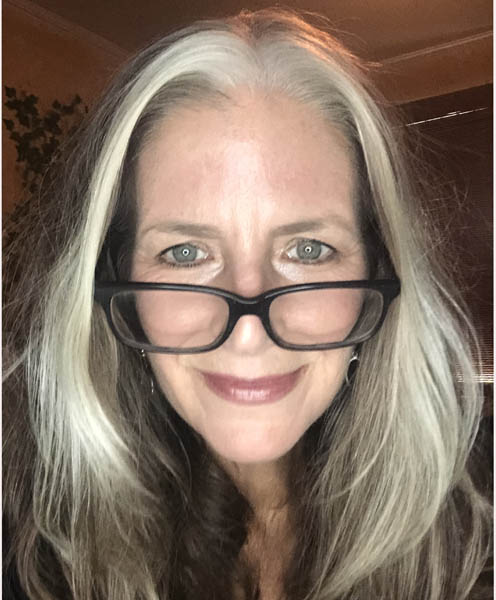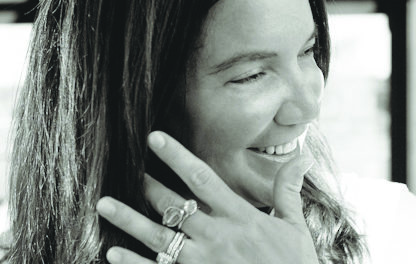Several years ago, in a column I can’t seem to find now, I wrote a sentence that my sister deemed Mug Worthy.
She liked the sentence so much, in fact, that we toyed with the idea of creating a whole line of coffee mugs and selling them on the internet. For a few days, we were super-excited about this business venture, which was sure to make us both rich beyond belief. (Who doesn’t need another clever coffee mug, right?) My sister is an artist, and she would design the mugs. My job was to come up with more Mug Worthy sentences.
But apparently, I’m a one-hit wonder. My one hit was this:
Hope and Despair had a love child; they named it Humor.
I still like it. The simple truth of it seems so obvious, I actually Googled it at the time to make sure it hadn’t already been written. And though this sentence never made it onto a mug, I find myself thinking about it a lot these days.
It’s the morning after the Rittenhouse verdict as I write this, and reader, my head is spinning. I’ve just spent a couple of hours devouring various “takes” on the verdict, from across the internet and social media, and unfortunately, despair is coming more easily than hope at the moment.
I truly fear for the future of a country where one popular narrative features Kyle Rittenhouse as a heroic young patriot, well-served by a justice system that mostly works, while the other popular narrative paints him as a racist monster who got away with murder, thanks to a justice system irreparably broken by white supremacy.
How do we coexist amid such irreconcilable visions of reality, especially when both are (by my lights) highly distorted? Where’s the hope?
As our country continues to deform itself into a carnival of dueling delusions – by way of that funhouse hall of mirrors we call “the media” – I find that laughter is becoming my favorite coping mechanism. It may be the laughter of a madwoman, but it sure feels better than tears.
There’s been a lot of speculation, lately – both here and abroad – about the impending death of humor. Comedy, to be more specific. Back in August, Rachel Aroesti explored the idea in an article for The Guardian, writing:
“Is cancel culture destroying comedy? A lot of comedians seem to think so. John Cleese has fretted that ‘wokeness’ will ‘stifle creativity.’ Chris Rock attributed all the ‘unfunny TV shows’ he sees to the fact that ‘everybody’s scared to make a move.’ Shappi Khorsandi wrote: ‘The fear of being ‘canceled’ is real and it will be the death of standup comedy as we know it.’ When Dawn French was asked on Times Radio if she felt cancel culture was ‘imaginatively restrictive,’ she said: ‘One hundred per cent yes,’ before expressing concern about how a comic couldn’t do ‘edgy’ material these days ‘because you’d just have so many haters on your back.’”
More recently, we witnessed the uproar surrounding Dave Chappelle’s comedy special “The Closer,” which garnered widespread criticism for its jokes about the transgender community, and even inspired a small walk-out by Netflix employees, who wanted it removed from their platform.
I believe Chappelle’s special is still on Netflix, and wildly popular, so – to paraphrase Mark Twain – reports of stand-up comedy’s death may be greatly exaggerated. I really couldn’t say.
All I know is that comedy is alive and well on Facebook. Yes, despite recent revelations by the Facebook whistleblower, I am here to tell you that the platform is, in fact, good for something. And that something is humor.
I recently discovered a public Facebook group called The Potentially Inappropriate Memebrary for Historians and Literaries. They describe themselves as “a humble group of historians, classicists, and literaries who are in it for the laughs.”
And laughs they get. This group of “memebrarians” – erudite though they may be – are deeply silly, outrageously irreverent, and completely shameless. I’m honestly not sure how they pull it off in this day and age, but Lord, do the belly laughs feel good.
When I discovered them back in October, I posted: “This is my new favorite FB group. They are hilarious and very often inappropriate. Every period of history – and every figure from history – is fair game. And nobody seems to get offended. Scrolling through the funny memes, you are reminded that much of human history is quite absurd and/or horrific in hindsight. Thank God we’re past all that now.”
Anybody following the group can share memes, though they must be approved by the moderators. One strict rule: No referencing anything “political” that happened after 2001. (This may be the secret to their success.) Otherwise, as far as I can tell, nothing is off limits. The moderators may reject a meme because it’s already been posted recently – or because it “just isn’t that funny” – but never because it might offend someone’s delicate sensibilities.
Those of us who follow this group – 80K strong, now – have tacitly agreed to leave our delicate sensibilities at the door. And you know what? I don’t miss mine a bit.
I’ve even been making my own memes lately – everybody needs a hobby, right? – and I’m proud to say I’ve had several posted in the Potentially Inappropriate Memebrary, where they’ve been quite well received. I thought about sharing one here, but I fear something might be lost in translation. Also, my husband – our publisher – says they’re “just not that funny.” Humor, like beauty, is in the eye of the beholder. Alas.
For me, there’s something especially refreshing – cathartic, even – about the dark humor that often appears in the Memebrary. The humor that makes you feel naughty for laughing at it, that both shocks and delights and makes you say, “No, you didn’t!” I’d give you an example, but again, I fear something might be lost in translation.
The truth is that all humor contains a degree of darkness. Going back to my Mug Worthy sentence – it’s the love child of hope and despair. Why a “love child,” specifically? Because hope and despair aren’t exactly a respectable married couple to be trotted out in polite company together. They’re more like star-crossed lovers, polar opposites inevitably drawn to each other, an illicit union by society’s standards. And their offspring – humor – elicits the swift and sudden recognition of the ugly, beautiful, inescapable truth about ourselves and our fellow humans: that we are light, but also darkness; sublime, but also ridiculous. Every single of one of us.
And when we recognize this truth, we laugh together. Not at each other, but with each other. And we forgive each other. We even forgive ourselves.
So, as another holiday season descends upon us – and the world around us gets crazier – I highly recommend a heaping helping of humor. It pairs nicely with eggnog, fruit cake, and generalized anxiety.








